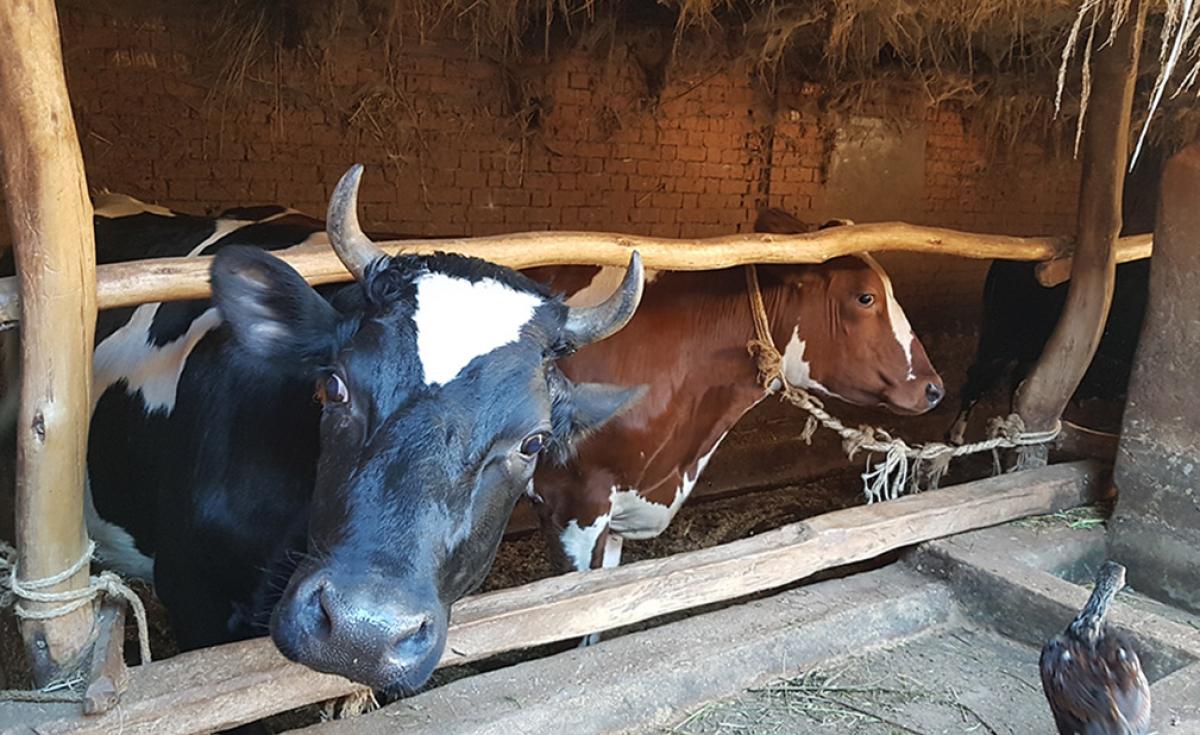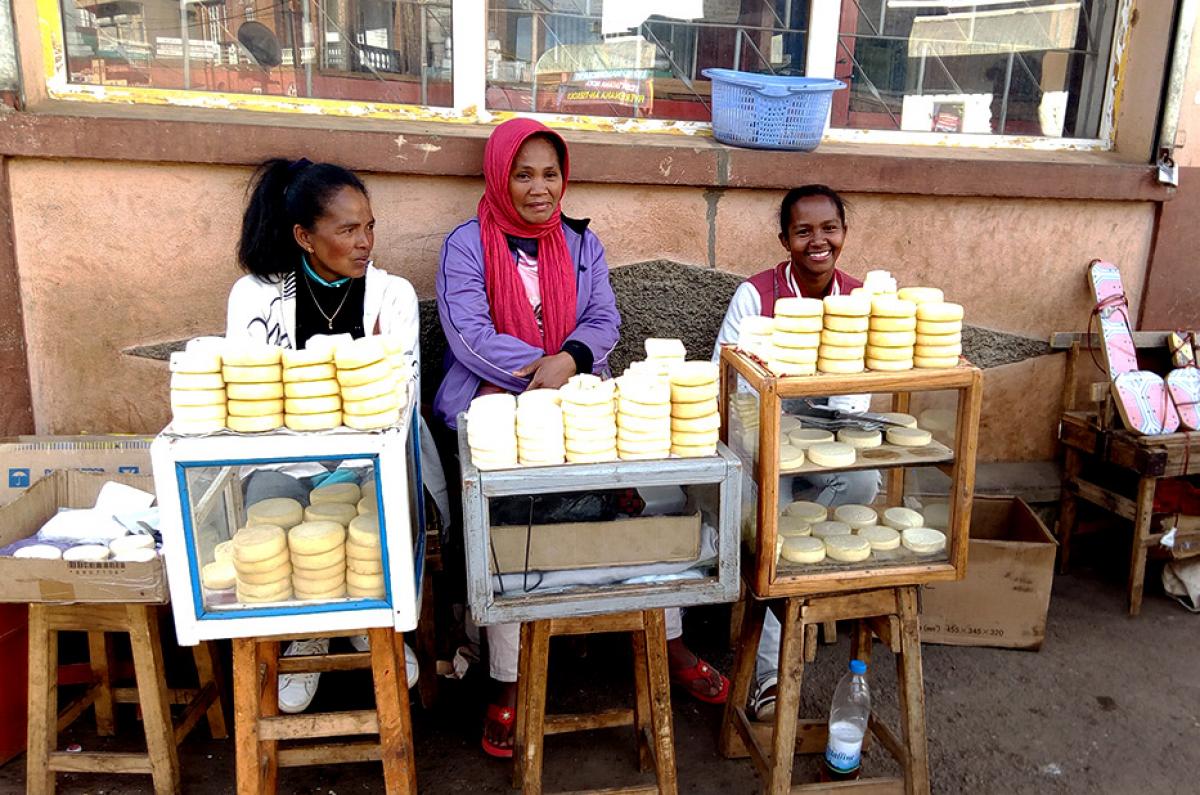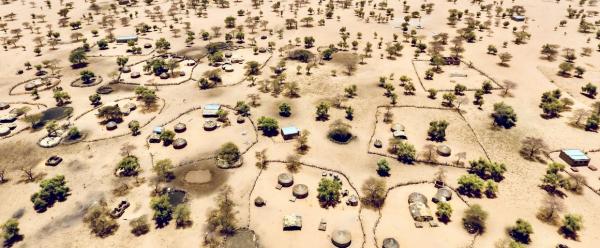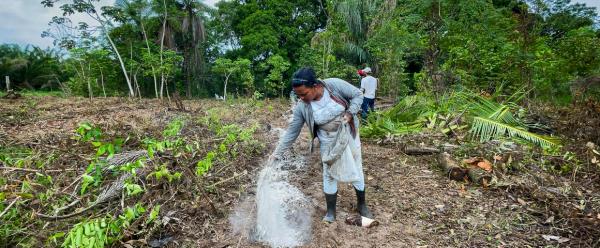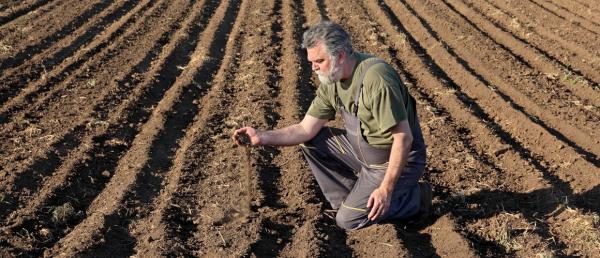Expert view 25 April 2024
- Home
- CIRAD news
- News
- Covid & food security | In Madagascar, the dairy sector is at a standstill
Covid-19 and food security | In Madagascar, the milk trade has dried up
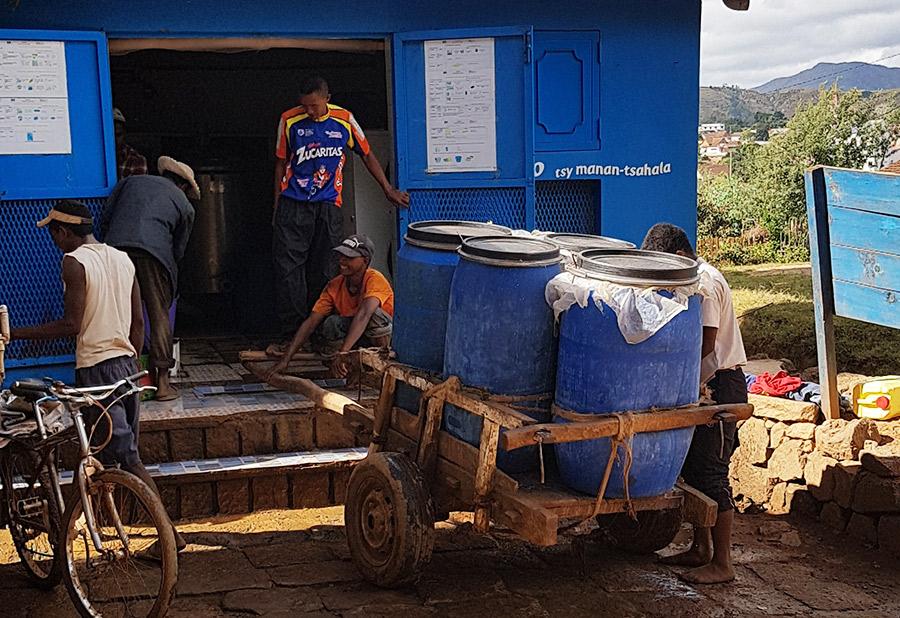
In the "dairy triangle" on the highland plateau in central Madagascar, some 60 000 farms produce milk. They are generally very small, with just one or two dairy cows, but they are the major source of supply for two of the country's main cities: Antsirabe and Antananarivo, the capital, a hundred kilometres or so to the North. Of a total volume of 100 million litres produced each year, consumed fresh or in the form of milk products, 10% is transported to and sold in Antsirabe and 50% to Antananarivo, thanks to more than 20 000 economic operators: collectors, processers and small traders.
Lockdown during peak production season: a shock for producers and dairies alike
More than two months after the start of the epidemic, the country has declared just over 600 cases of coronavirus contamination and just two deaths. Partial lockdown and personal travel restrictions still apply, and most economic activity is at a standstill. Lockdown began in the middle of the peak dairy production season, which was a shock for dairies, particularly small- and medium-sized operators, and for producers, who suddenly found themselves without outlets for their milk.
Ordinarily, large volumes of products, particularly fresh milk, are transported by producers or small-scale collectors by public transport or shared taxi, but the capital is currently on lockdown and transport services are running only a skeleton service, making fresh product supplies more difficult than usual.
The main issue, however, is that urban demand for milk and dairy products has slumped. Restaurants are closed, and markets, grocery shops and supermarkets only open for a few hours a day. Moreover, a large proportion of city-dwellers are unable to work and no longer have the same purchasing power. They are concentrating on essentials, and milk, yoghurt and cheese are left on the shelves.
Most dairies have shut down, and those still operating have also been affected
The slump in demand for dairy products, which are mostly perishable, has had an impact on collectors, and on even greater numbers of producers, who have had to sell their products at a lower price, if indeed they have been able to sell, and have thus lost part of their income. A minority have chosen to make yoghurt from their milk and sell it locally or in nearby towns. However, most are not equipped to do so, and have consumed their unsold milk themselves, given it to friends and family, or fed it to their animals (calves and pigs). Many dairies have had to shut down.
The few industrial dairies, which process less than 10% of the milk produced, have continued to be supplied. They generally have their own network of collectors, collection centres and means of transport, and have been largely unaffected by travel restrictions. Moreover, during this peak production period, they have had access to larger volumes of milk from producers who have lost their usual outlets. However, they have all been hit by the drop in demand. Many have opted to halt collection for several days, if not weeks, and limited volumes by introducing quotas, raising quality standards and cutting prices.
A capacity for resilience that should be taken into account in development policy
The crisis has not yet lasted long enough for operators to go bust or have to raise cash by selling their livestock or equipment. What remains to be seen to measure the effects is how long the crisis will last and when urban consumption will pick up.
Nevertheless, the players in the sector are capable of bouncing back. Previous crises, in 2001 and 2009, have proved that. Their resilience lies in the diversification of farm production systems: commercial food crops or cereals, legume crops, fruit and vegetables, and non-agricultural activities. Many processors are capable of making several types of products (yoghurt, cheese, etc), and the various small operators in the chain, collectors and traders, also have other activities (farming, services, etc). This goes against the trend towards specialization and industrialization, and it is key to a capacity to withstand recurring crises and shocks that almost certainly should be taken into account in development policy.
Text written by: Sarah Audouin, Jean-François Bélières, Perrine Burnod, Hélène David-Benz, Mathieu Vigne (CIRAD), and Willy Rakotomalala and Lovaniaina Rakotomalala (FIFAMANOR).
























